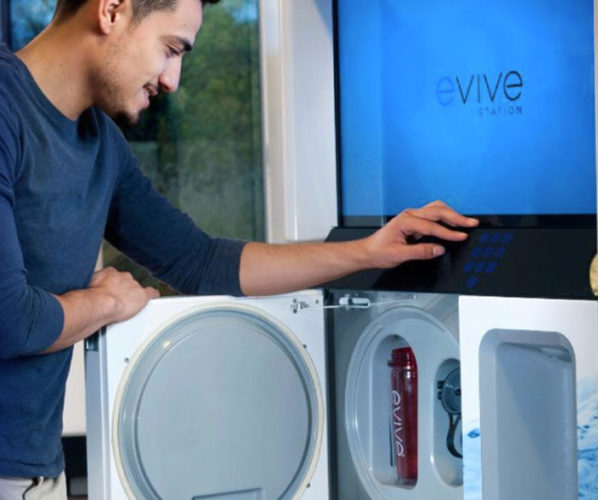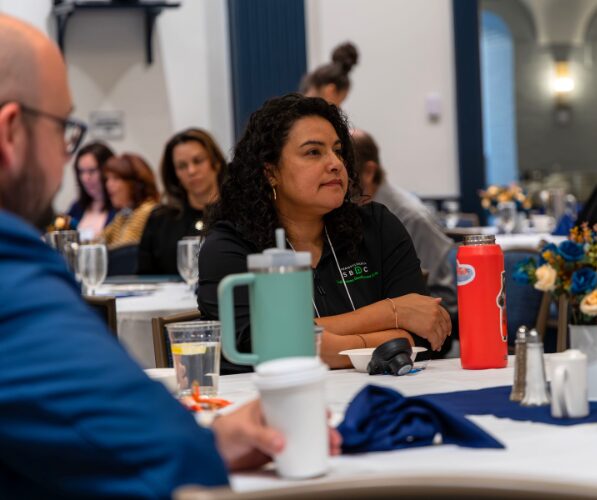Success Story
“The support of Penn State to build the prototype and help with validating the business model was hugely beneficial for us.”
Tom Petrini
Co-Founder, Evive Station
Evive Station Founder Taps Bright Minds at Penn State
Tom Petrini had an idea. College campuses across the country were banning plastic water bottles because of environmental concerns, so, “Why not develop kiosks where students could refill and sanitize reusable water bottles?”
Petrini, who was working full time, began looking for a university that could bring his idea to life. He turned to Penn State.
In 2009, Petrini approached Dr. Timothy Simpson, then director of Penn State’s Learning Factory, a senior capstone design program in the College of Engineering where students collaborate with industry partners on real-world projects.
An engineering team advised by Dr. Matthew Parkinson, associate professor of mechanical engineering and engineering design, developed the prototype for the Evive Station. In a follow-up capstone project, Professor Liz Kisenwether assembled students from engineering, business and the College of Information Sciences and Technology to refine the prototype and develop a business plan.
Petrini says that working with the student team helped to move his plans forward, attract investors and prove the legitimacy of his idea. “Because it was a student team and the initial market we’re going in to is universities, it really helped validate the concept.”
With a comprehensive design and business plan in hand, Petrini launched Evive Station in April 2012.
“The support of Penn State to build the prototype and help with validating the business model and plan was hugely beneficial for us,” Petrini says.
It was also beneficial for students at Penn State, whose hard work and ability to collaborate across areas of study earned Simpson’s praise. And, as he points out, the program is self-sustaining: “Everybody has skin in the game and everybody benefits. Penn State invests in terms of staff. Departments invest in the faculty. Students invest time, and sponsors invest the money to actually build the project.
Simpson adds, “The Learning Factory provides such great, real-world experience for these students. It’s adding to the entrepreneurial fever we’re seeing across all our colleges and campuses.”






